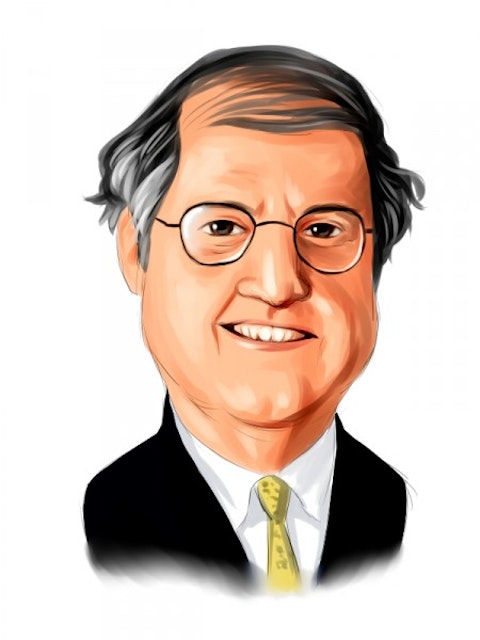Teva Pharmaceutical Industries (TEVA) has been expanding and gaining market share through aggressive acquisitions and product development programs recently. Over the past few years, the company has grown to become the largest generic drug company in the world, providing over 400 generic products. It has a large and rapidly-expanding portfolio of products as well as a broadening geographic reach – and its numbers reflect that.
Over the past five years, Teva’s sales have grown at an average rate of 17% a year while its EPS has grown at an average of 37% a year. The growth was driven largely by acquisitions. Teva’s acquisition of Barr in late 2008 and Ratiopharm in 2010, in particular, have significantly increased the company’s revenue and earnings growth.
We anticipate this strong growth trend will continue in the future. We estimate the company’s revenue will grow around 18% this year, reflecting the acquisition of Cephalon in 2011. Cephalon’s sales in 2010 were about $2.8 billion. Teva bought Cephalon for a total of $6.5 billion in cash in October 2011. The acquisition will not only further strengthen the branded business of Teva, but also offer diversification into other areas such as oncology treatments.
The acquisition is expected to add at least $2 billion revenue to Teva. Analysts expect the acquisition will increase Teva’s EPS by about $0.20 to $0.25 this year. In addition to the Cephalon acquisition, Teva also bought Taiyo last year. Taiyo is a leading generic drug manufacturer in Japan and Teva purchased the company for $934 million in July 2011. The acquisition should help Teva to gain market shares in Asia and boost Teva’s sales in Japan.
But, Teva didn’t only grow through external expansion – the company has also had some significant, and profitable, internal developments. Teva has been continuously developing new products. Like many other drug manufacturers, the company is also faced with the patent expiration of some of its branded products, such as Lipitor, Plavix and Lexapro. In order to offset the negative impact of patent expiration, Teva has launched a number of new generic products, which are expected to generate about $650 million of sales. As of early February this year, Teva had about 177 Abbreviated New Drug Applications (ANDA) before the US Food and Drug Administration (FDA).
Teva is also a dividend growth stock. The company’s current dividend yield is about 2.11% and it has been raising its dividend payments for 12 consecutive years. Last year, Teva boosted its quarterly dividend by over 20% to $0.2253 per share. We expect the company will continue to increase its dividend payouts in the future. Teva has a decent earnings yield of 11% and its earnings are expected to grow at a rate of 8.3% per year over the next couple of years. Plus, its payout ratio is only around 20%, indicating its capability to further raise its dividends.
With regard to valuation, Teva looks good as well. The company is expected to make $5.60 per share in 2012 and $6.06 per share in 2013, versus $4.98 per share for the trailing 12-month. It is currently trading at about $44 per share, so its forward P/E ratio is 7.9 – a significant discount to the industry average of 17.3. A few major competitors of Teva include Watson Pharmaceuticals Inc (WPI) and Perrigo Co (PRGO). Both of them are trading at higher multiples than Teva. Watson’s forward P/E ratio is 11.64 and Perrigo’s is 21.7. Watson’s earnings are expected to grow at 8-9% annually, while Perrigo has a double-digit growth expectation. However, Perrigo is still trading at a premium compared with Teva after its growth potential is taken into account. Its P/E ratio for 2013 is about 19, much higher than the 7.3 for Teva.
Overall we like Teva. It is currently trading at a low price and we see strong growth potential in the company as it is continuously expanding through acquiring other companies and developing new products. Investors can also gain exposure to international markets by investing in Teva as the company operates globally. Hedge funds love Teva too.
At the end of last year, 38 hedge funds reported to own Teva in their 13F portfolios. Curtis Macnguyen’s Ivory Capital initiated a brand new $34 million position in Teva during the fourth quarter last year, while Bill Miller’s Legg Mason Capital Management had $82 million invested in Teva as of December 31, 2011. D. E. Shaw, Boykin Curry, Israel Englander and Tom Gayner were also bullish about Teva.
